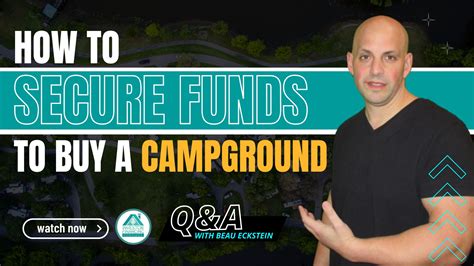Secure Your Campground Dream: Affordable Financing Options
Owning a campground has always been a dream for many—a chance to connect with nature, build a thriving business, and enjoy the great outdoors. But the initial investment can seem daunting. Fortunately, securing affordable financing for your campground dream is more achievable than you might think. This guide explores various financing options to help you turn your vision into reality.
What are the financing options for purchasing a campground?
Several avenues exist for financing a campground purchase, each with its own advantages and disadvantages. The best option for you will depend on your financial situation, credit score, and the specifics of the campground purchase.
-
Conventional Loans: These are traditional loans from banks and credit unions. They typically require a substantial down payment (often 20-30%) and a good credit score. Interest rates vary depending on market conditions and your creditworthiness. While potentially offering lower interest rates than other options, the stringent requirements can be a hurdle for some.
-
SBA Loans: The Small Business Administration (SBA) offers loan programs that guarantee a portion of the loan to lenders, making them more willing to lend to smaller businesses, including campgrounds, with less-than-perfect credit. These loans often have more favorable terms than conventional loans, but the application process can be more complex.
-
Rural Development Loans: If the campground is located in a rural area, you may be eligible for financing through the USDA Rural Development program. These loans often offer lower interest rates and longer repayment terms, making them particularly attractive for rural campground ventures.
-
Commercial Real Estate Loans: Since a campground often involves land and buildings, commercial real estate loans are another viable option. These loans are specifically designed for commercial properties and may require a higher down payment and a robust business plan.
-
Seller Financing: In some cases, the current campground owner may be willing to offer seller financing. This means they act as the lender, providing financing as part of the sale agreement. This can be a beneficial option for buyers with limited access to traditional financing, but it's crucial to have a solid legal agreement in place.
-
Private Investors: Seeking funding from private investors or angel investors is another possibility. This requires a compelling business plan and a strong pitch to attract investment. While potentially offering flexibility, it often involves sharing ownership or equity in the campground.
How much does it cost to buy a campground?
The cost of buying a campground varies dramatically depending on several factors:
- Location: Campgrounds in desirable locations with high tourist traffic generally command higher prices.
- Size: Larger campgrounds with more amenities will naturally cost more than smaller ones.
- Amenities: The presence of amenities like cabins, pools, recreational facilities, and RV hookups significantly impacts the price.
- Existing infrastructure: The condition of existing buildings, utilities, and infrastructure plays a crucial role.
It's crucial to conduct thorough due diligence and obtain a professional appraisal to accurately assess the value of any campground you are considering purchasing.
What is the average interest rate for a campground loan?
The interest rate for a campground loan varies depending on the lender, the loan type, the borrower's creditworthiness, and prevailing market conditions. Expect rates to range from the prime rate plus a few percentage points to potentially higher rates if your credit score isn't ideal or you're utilizing alternative financing options.
How to improve your chances of securing financing?
To increase your chances of securing affordable financing, take these steps:
- Develop a robust business plan: A detailed business plan demonstrating the campground's profitability and sustainability is crucial for convincing lenders.
- Secure a substantial down payment: A larger down payment reduces the lender's risk and improves your chances of approval.
- Maintain a strong credit score: A high credit score demonstrates financial responsibility and increases your eligibility for favorable loan terms.
- Explore all financing options: Don't limit yourself to one option; research various lenders and loan programs to find the best fit.
- Work with a qualified financial advisor: A financial advisor can guide you through the financing process and help you choose the right loan for your needs.
Turning your campground dream into a reality takes planning and financial savvy. By carefully considering these financing options and preparing thoroughly, you can navigate the process successfully and enjoy the rewards of owning your own campground. Remember to always consult with financial professionals and legal counsel to ensure you make informed decisions.

